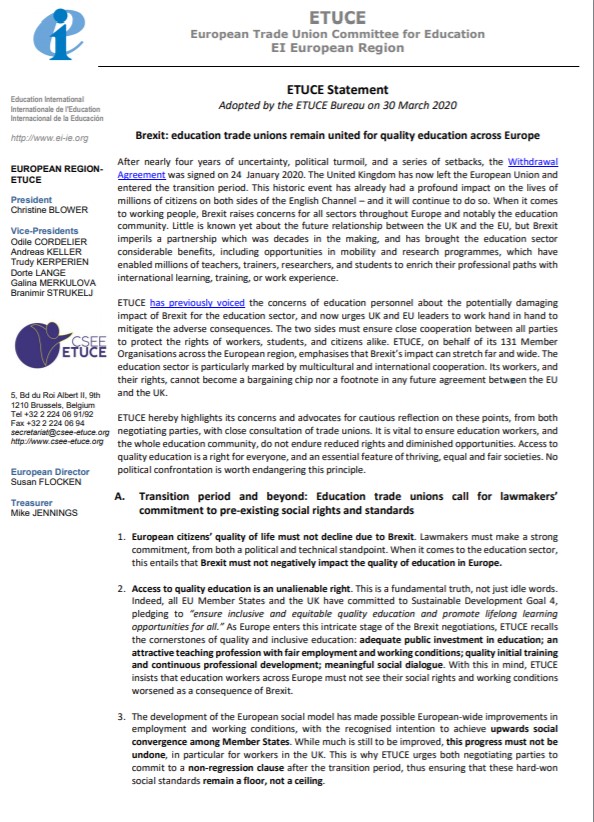Brexit: Education workers across Europe will not be divided
Published:
The clock is ticking on the Brexit transition period. The education sector, particularly higher education, could face major consequences. ETUCE has released its vision for the future relationship between the UK and the EU, calling on negotiators to protect workers’ rights and educational opportunities for all.
The UK left the EU on 31 January 2020. As stipulated in the Withdrawal Agreement, there will now be a transition period until the end of the year. Negotiators are working on an agreement for a new EU-UK relationship, meaning that Brexit remains a source of concern and uncertainty for many workers and citizens across Europe.
The impact on the education sector is a key issue in these negotiations. Education trade unions from both the UK and EU member states have been watching developments closely. Crucially, they are standing together to build a common vision through ETUCE. This has led to a full ETUCE Statement on Brexit, setting out the concerns and demands of education workers, which was adopted by the ETUCE Bureau on 30 March.
After decades of close cooperation, the education sector, its personnel and students face many risks from Brexit. Foremost are the possible loss of mobility opportunities and research funding. We call on UK and EU negotiators to work hand in hand, in consultation with education workers’ representatives. The agreement on a future relationship must maintain pre-existing social standards, including workers’ rights, and guarantee a close and mutually beneficial partnership between the two sides. Only this way can education staff and learners continue to benefit from the educational opportunities they enjoy today.
